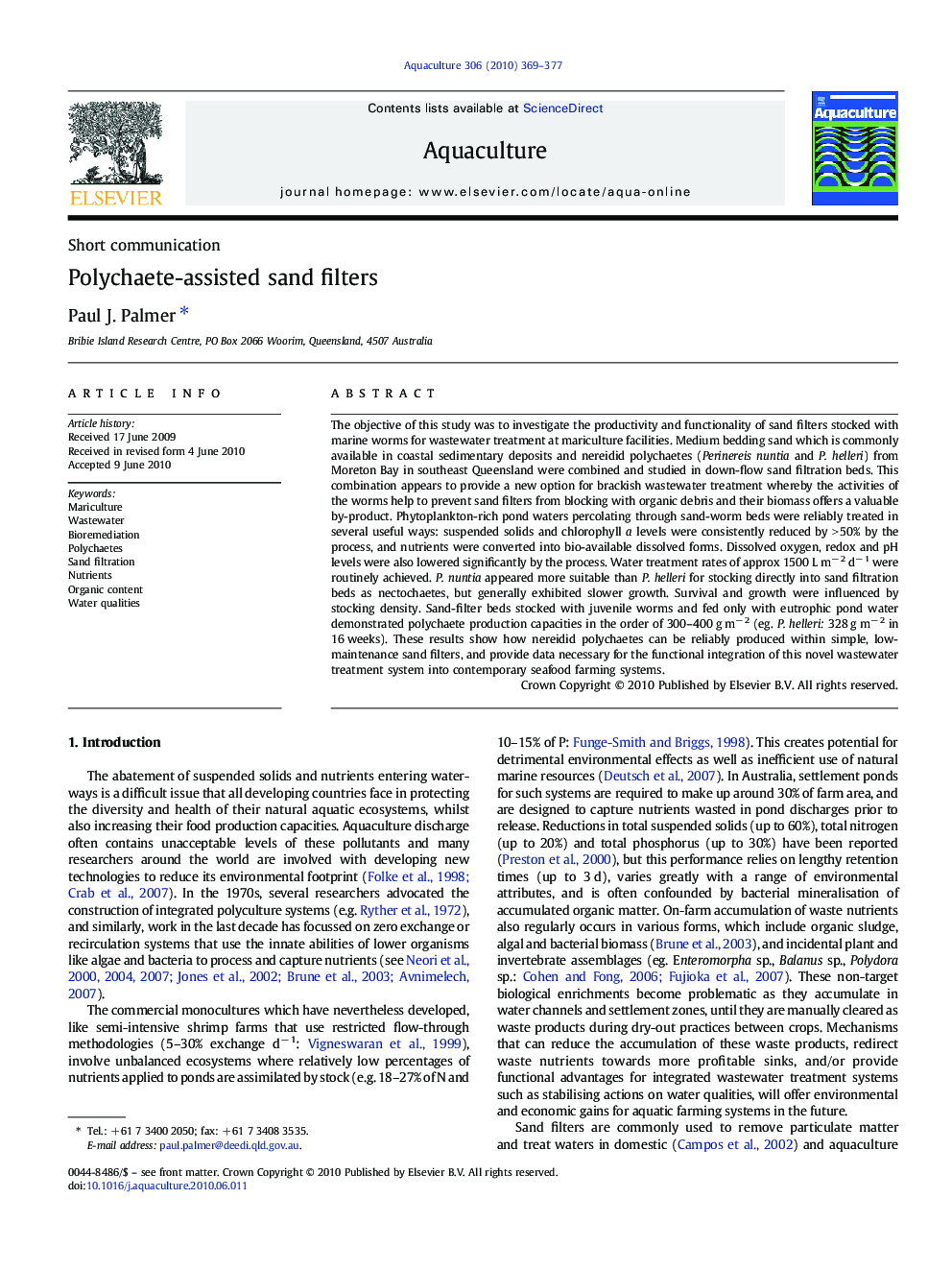| Article ID | Journal | Published Year | Pages | File Type |
|---|---|---|---|---|
| 2423627 | Aquaculture | 2010 | 9 Pages |
The objective of this study was to investigate the productivity and functionality of sand filters stocked with marine worms for wastewater treatment at mariculture facilities. Medium bedding sand which is commonly available in coastal sedimentary deposits and nereidid polychaetes (Perinereis nuntia and P. helleri) from Moreton Bay in southeast Queensland were combined and studied in down-flow sand filtration beds. This combination appears to provide a new option for brackish wastewater treatment whereby the activities of the worms help to prevent sand filters from blocking with organic debris and their biomass offers a valuable by-product. Phytoplankton-rich pond waters percolating through sand-worm beds were reliably treated in several useful ways: suspended solids and chlorophyll a levels were consistently reduced by > 50% by the process, and nutrients were converted into bio-available dissolved forms. Dissolved oxygen, redox and pH levels were also lowered significantly by the process. Water treatment rates of approx 1500 L m− 2 d− 1 were routinely achieved. P. nuntia appeared more suitable than P. helleri for stocking directly into sand filtration beds as nectochaetes, but generally exhibited slower growth. Survival and growth were influenced by stocking density. Sand-filter beds stocked with juvenile worms and fed only with eutrophic pond water demonstrated polychaete production capacities in the order of 300–400 g m− 2 (eg. P. helleri: 328 g m− 2 in 16 weeks). These results show how nereidid polychaetes can be reliably produced within simple, low-maintenance sand filters, and provide data necessary for the functional integration of this novel wastewater treatment system into contemporary seafood farming systems.
